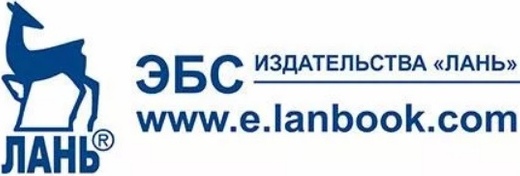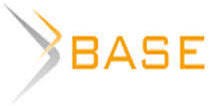Foreign experience in the implementation of innovative technologies in small and medium-sized businesses in new market conditions
Abstract
The article presents the results of a study of foreign experience in the implementation of innovative technologies in small and medium-sized enterprises. An overview of state support institutions and forms of stimulating innovation activity in the USA, Japan, France, Germany, Canada, and the United Kingdom was presented. The result of a comparative review of the directions of state support in these countries is the identification of similar methods of supporting small and medium-sized innovative entrepreneurship. The Russian problems of innovative development of small and medium-sized enterprises are identified, in particular, instability of Russian legislation, high taxes, corruption, lack of financial resources, high initial costs for business organization, saturation of sales markets, uneven development of regions, a pandemic. Modern innovative marketing technologies that allow increasing the market share and income of small and medium-sized enterprises are highlighted.
Keywords: innovative activity, state support, foreign experience, Russian reality, innovative marketing technologies
Introduction
The current stage of technological development of the economy, a high degree of competition and a degree of globalization form a new contour of market conditions. Every day, small and medium-sized enterprises face development challenges related to the need to modernize their business and take into account changes in human resources, sales and other development-related areas.
All these changes are guiding small and medium-sized enterprises towards active use of innovative management technologies, including in the field of marketing. The use of innovation in marketing could be an attractive solution for cash-strapped firms, as well as in times of economic crisis.
The purpose of this study is to review the state support institutions and forms of stimulating innovation in foreign countries, as well as highlighting modern innovative marketing technologies that are optimal for small and medium-sized enterprises.
Main part
Marketing activities of small and medium enterprises (SMEs) have their own characteristics associated with low budget and small audience coverage, but often this type of activity is perceived by SMEs as secondary compared to sales and business development. At the same time, the difference between SMEs and large firms is that small firms cannot compete using economies of scale; therefore, their competitive advantage lies in the development of innovative products or processes that depend on knowledge of the market and consumers [Berezhnov G.V., 2019]. Creative marketing methods can thrive even with limited financial resources.
In general, the reputation of SMEs is built on their courage to take responsibility, be creative and take risks. At the same time, state support for SMEs has a strong effect on the positive changes of business.
At the moment, the Russian state support program is unstructured, fragmented and not targeted. In addition, these programs do not meet the real needs of the SME sector, are poorly used, and there is a lack of liquidity in financing the SME sector and a low level of digitalization of SMEs.
The study of foreign experience in stimulating innovation activity makes it possible to identify strengths and optimal methods for developing an effective state innovation policy to support enterprises in other countries with possible adaptation to Russian conditions.
The experience of foreign countries in solving the problems of innovation development is presented in a summary table on the review of state support institutions and forms of innovation stimulation in the USA, Japan, France, Germany, Canada, Great Britain [Avilova A., 2019; Palamarchuk S. V., 2015; Bahram Sattari Model of Marketing…, 2019; Michele O'Dwyer Innovative…, 2019; Vasanth Kiran…, 2019].
Таблица
Table
State support of innovation activity by foreign states
Country | State support for innovation activities | Main organizational structures of the innovation process | |
|---|---|---|---|
State support institutions | Forms of incentives | ||
USA | Small Business Administration, National Science Foundation, Federal Agencies, National Network of New Technology Adoption Centers, American Association for the Advancement of Science, National Research Council, National Institute of Standards and Technology, National Technical Information Service, Office of Technology Policy | Preferential taxation, investment tax credit, preferential depreciation regime, subsidies, targeted budget appropriations | Technological capital network, technopolises, science and technology parks, quasi-risk form of corporate organization, small innovative enterprises, research consortiums and organizations, business incubators, science and technology centers, science and engineering centers, joint industrial-university research centers, venture capital companies |
Japan | State Research and Development Promotion Funds, Small and Medium Venture Company Promotion Fund, Small Business Finance Corporation, Enterprise Development Promotion Center | Concessional lending and taxation, subsidies | Japan Research Development Corporation, technopolises, science and technology parks, small innovative enterprises, research consortiums and organizations |
France | Special Governmental Organization, French Venture Capital Partnership, National Center for Scientific Research, the French National Research Agency (ANR), National Agency for Advanced Study, Public-Private Bank for Financing Small Innovative Business | Grants, subsidies, long-term loans, tax credits, credit guarantees, preferential taxation | Technopolises, technology parks, small innovative enterprises, research consortiums and organizations, venture companies, technology transfer centers |
Germany | Small innovative business consortiums, state-owned specialized banks (Reproduction Credit Bank, German Equalization Bank), Ministry of Economics, Ministry of Scientific Research and Technology, Federation of Industrial Associations, Patent Center | Targeted gratuitous subsidies, subsidies, payment of technical expertise costs, preferential loans, a credit insurance system, tax rebates and benefits, accelerated depreciation, targeted bank loans | Science and technology parks, technopolises, small innovative enterprises, research consortiums, venture companies |
Canada | Small innovative business consortia, the Canada Foundation for Innovation | Concessional loans, subsidies, technical assistance, tax credit, tax relief | Technopolises, science and technology parks, small innovative enterprises, research consortiums, venture companies |
United Kingdom | The Council for Science and Technology, government research councils | Tax incentives, subsidies, R&D write-offs | British Technology Group, technopolises, science and technology parks, small innovation enterprises, venture capital firms, research consortiums, venture companies |
A comparative review of the areas of state support in a number of countries will highlight similar methods of state support for SMEs:
- information support (Germany, USA, Russia, France);
- the opportunity for employees of state research institutes to participate in commercial activities for implementation of scientific developments (France, Great Britain);
- tax incentives (Great Britain, Germany, Russia, France);
- direct financing of innovative enterprises (Germany, Great Britain, France);
- development of technology parks and business incubators (Russia, Germany);
- specially created bodies regulating the innovation climate in the country (Great Britain, Russia, France);
- support of venture innovative enterprises (Germany);
- support for activities of intermediaries between business and research institutions (USA, UK) [Palamarchuk S. V., 2015].
Separately, the development program of the Italian Artificial Intelligence Foundation (Fondo per Artificial Intelligence, Blockchain e IoT) should be noted. In Italy, a wide consultation process conducted by the Italian government with the participation of a group of 30 experts selected from various public and private organizations helped to identify problems, needs for key technology and marketing areas specific to Italy. These identified factors determine the development of a national strategy with a focus on artificial intelligence, blockchain and the Internet of things.
The experience of foreign countries and its implementation are of great importance for Russia, since the listed measures to support innovation activities are not fully implemented in Russia, which slows down the innovative development of both SMEs and the country as a whole.
Russia is significantly inferior to many countries not only in the share of innovations used, but also in terms of such specific indicators as the share of the SME sector in the economy, the share of employees, the number of SMEs, and the share of turnover in the small and medium-sized enterprise sector. The main types of innovative activity in the sector of small and medium-sized enterprises are the improvement of an existing product or service, the expansion of the geography of sales, and the improvement of the sales support process.
An analysis of the impact of innovative marketing technologies on the development and competitiveness of small and medium-sized enterprises showed that the low number of small and medium-sized enterprises engaged in innovative development and implementation of marketing technologies is associated with a huge number of barriers: instability of Russian legislation, high taxes, corruption, actions/pressure from authorities, lack of financial resources, high start-up costs for organizing a business, difficulty in gaining access to infrastructure, saturation of sales markets, uneven development of regions, a pandemic and the impossibility of introducing technologies to all areas of SMEs.
Most of the latest marketing technologies are used by large companies, since small and medium-sized enterprises usually do not have enough funds to maintain and conduct continuous innovative marketing.
In today's online shopping environment, there is a good opportunity for SMEs to compete with larger companies to gain competitive advantage by introducing smart technologies (artificial intelligence). Artificial intelligence can be used to support and enhance traditional business practices, including social media management, conversational marketing, and remarketing.
Newspaper advertising used to be commonplace, now digital advertising and artificial intelligence are playing a critical role in business marketing tactics. Providing more authentic content, using chatbots and voice search, increasing the use of social media marketing, and creating engaging user experiences are some of the key trends in 2021.
Taking into account the financial and market opportunities of SMEs, it is advisable to single out innovative marketing technologies that allow increasing the market share and income of enterprises:
1. Stimulation of an individual approach to clients. The personalization of offers is becoming more important every day, given the growing role of the "online" business space. Increased focus on data analytics and its use to ascertain consumer intent will have a positive impact on SME businesses. A focus on multi-channel marketing strategy and data collection to improve user experience and business results should be the dominant focus for all SMEs.
2. Focus on "customer retention". Despite the positive data on the activity of SMEs in Russia during the pandemic period, some enterprises have not yet recovered from COVID, the period of business closure due to restrictive measures showed that it is better to focus on mobile marketing (personalized push notifications on smartphones and promotions) to retain customers for loyalty – bonus cards and coupons).
3. Promotion through social networks. Today, almost all brands and online stores have their own page on social networks. Also, for a more successful business, SMEs need to shoot popular videos and be "in trend" (in particular, using an application like TikTok, launched in August 2020). Such platforms allow marketers to more naturally weave brand content into user feeds.
4. Online shopping and "virtual reality". Today, consumers "live on the Internet", more and more make online purchases, which confirms the boom of social commerce, when user participation in social networks is directly converted into sales. For small and medium-sized enterprises, the key is to develop a clear strategy to attract buyers on social networks. At the same time, SMEs should think about augmented reality marketing, which helped the target market feel like the owner of the product without even seeing it in person: an augmented reality catalog or a virtual fitting.
Conclusion
In general, solving the problems of development and implementation of innovative marketing technologies in small and medium-sized enterprises in Russia play a special role in the modern economy because they contribute to stimulating economic growth, the development of international specialization and industries in connection with increasing global competition, improving the quality of life of the population and the importance of Russia on the world stage.

















Reference lists
S. V. Palamarchuk // E`konomika i predprinimatelstvo. – 2015. – № 12-1(65): 987-990.
ing_Strategies_For_Micro_Small_and_Medium_Enterprises. (Accessed 01 March 2022).
Ziółkowska, M.J. Digital Transformation and Marketing Activities in Small and Medium–Sized Enterprises, 2021. [Elektronny resurs] / Marta Joanna Ziółkowska // Sustainability. 2021 – Available at: https://doi.org/10.3390/ su13052512. (Accessed 01 March 2022)